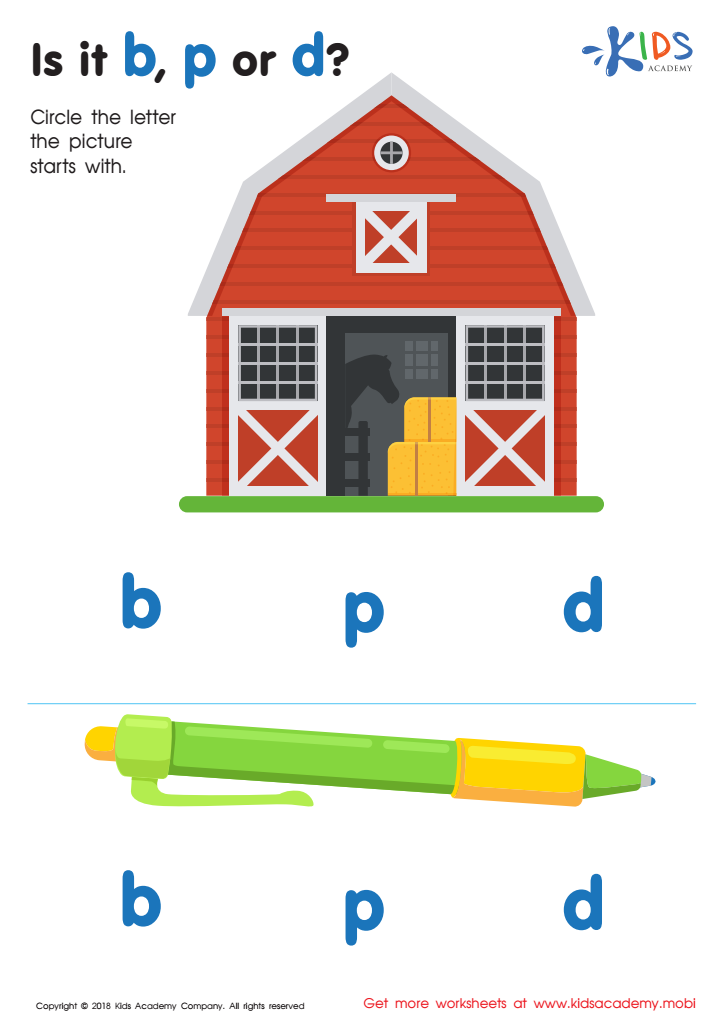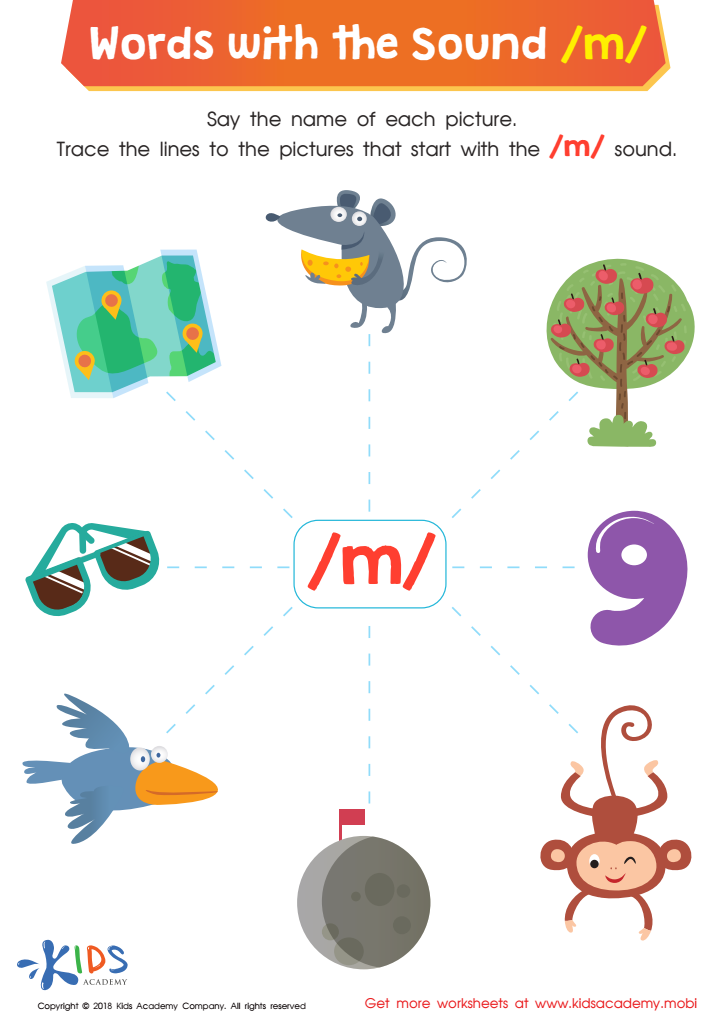Phonics practice Beginning Sounds Worksheets for Ages 3-7
5 filtered results
-
From - To
Discover our engaging Phonics Practice Beginning Sounds Worksheets, ideal for children ages 3-7! These educational resources are designed to teach young learners the essential skill of identifying beginning sounds in words, laying the foundation for successful reading. Each worksheet features vibrant images and fun activities that make learning interactive and enjoyable. Whether at home or in the classroom, kids will build confidence and enhance their phonics skills, making early literacy development a breeze. Perfect for parents and teachers alike, our worksheets help turn learning into an exciting adventure! Explore more and set your child on the path to reading success.


Twin Onset Worksheet


Is it b, p or d? Worksheet


Words with sound p Reading Worksheet


Words with sound f Reading Worksheet


Words with Sound M Reading Worksheet
Phonics practice focusing on beginning sounds for ages 3-7 is crucial as it lays the foundation for successful reading and writing abilities. During these formative years, children's brains are highly receptive to learning language concepts, making it an optimal time to introduce phonics. Phonics emphasizes the relationship between letters and their corresponding sounds, which is essential for decoding words and developing reading fluency.
By focusing specifically on beginning sounds, children learn to identify and differentiate the initial phonemes in words, a skill that is foundational for word recognition and spelling. This practice helps children understand that words are composed of individual sounds that blend together. For example, recognizing that the word "cat" starts with the /k/ sound and "bat" starts with the /b/ sound allows children to begin distinguishing between similar sounding words.
Engaging in phonics activities also enhances vocabulary and listening skills, as children start to pay closer attention to the sounds within words. Moreover, early success in phonics builds confidence and encourages a positive attitude towards reading and learning in general.
Overall, phonics practice with a focus on beginning sounds ensures that children gain essential pre-literacy skills, setting a strong groundwork that supports their future academic success and lifelong learning. Parents and teachers who invest in these early phonics exercises provide children with the significant advantage needed for effective and enjoyable reading experiences.

 Assign to My Students
Assign to My Students





















